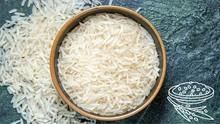
Despite the snow and bone-chilling cold, the everyday slog of the ladies tending their floating gardens in Srinagar's Dal Lake never stops. They use scoops to clear the snow to reap vegetables. For quite a long time, these floating gardens have been the wellspring of vocation for an enormous number of Kashmiri ladies. Raht Ded lives on Meer Behri island on the lake with her granddaughter Nusrat. As we talk, they cautiously gauge their stock before stacking it on to a restricted shikara, which they will column to the nearby business sectors.
The lake is somewhat solidified and the vast majority are inside. Yet, ladies like Raht don't have that extravagance. "Life has consistently been this way," says Raht grinning, "As a child, I used to help my folks in the floating nursery." And now her granddaughter, a class X student, helps her. "It is our lifestyle, it supports our group," says the mild-mannered Nusrat, including, "We own three little floating gardens that all things considered getting near Rs1 lakh per season (January-July)."
She discovers that the floating nurseries are worked from two sorts of weeds found in the Dal and referred to locally as pech (Typha angustata) and nargasa (Phragmites australis). Boatmen mesh the weeds together into floating mats that structure the base of the nursery. Layers of pruned weeds are included and, in three years, the skimming garden turns into a 2m-thick, 3m-wide, and 45m-long raft. The sizes may differ.
At that point, there are two sorts of floating gardens, raadh and demb. The raadh is a versatile floating garden, ideal for developing tomatoes, melons, pumpkin, and cucumber. The demb is static, constructed either along the shore or in the shallows. Farmers become pretty much every assortment of vegetables on them: turnip, radish, carrot, saag during winter and melons, tomato, cucumber, and pumpkin in the mid-year.
More than 6,000 families rely upon the floating nurseries. Be that as it may, a considerable lot of these families were removed and their nurseries cleared when the administration connected the cultivating exercises to the contamination in the Dal Lake.
Raht says the J&K Lakes and Waterways Development Authority (Lawda) has recognized 6,250 families in 52 villas around the lake and suggested moving them under an undertaking that is assessed to cost almost Rs417 crore. Up until now, 300 families have been moved. The lake is being harmed by houseboat and lodging proprietors who dump their waste in it.
In the Kand Mohalla of Dal Lake, Kulsum Mir, who picks haakh (collard greens) from her floating garden. It has been snowing throughout the previous three days, and She hasn't had the option to remove any haakh, a much searched after vegetable in the nearby business sectors.
To meet increasing costs, she, alongside her husband, invests more time in their floating garden. She needs to give a decent life to their four children and that is the reason her husband goes to the business sectors early morning available to be purchased. She plants seeds and saplings.
As the snow keeps on falling, Raht plans to take her boatload of vegetables to the business sectors. The floating nursery is her ancestors' valued belonging. They framed it by gathering soil and waste from the Dal. She is dealing with a family treasure.








